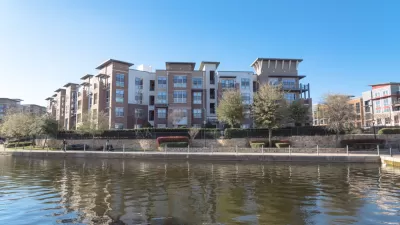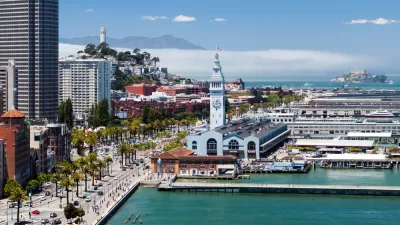The Brookings Institution's Global Cities Initiative recently released a report proposing a new definition for global cities, which is actually seven definitions.

Jesus Leal Trujillo and Joseph Parilla presents a report that proposes a new formula for measuring the global stature of cities. The "Redefining global cities: The seven types of global metro economies" report presents seven varieties of global cities, taking into account how recent processes of urbanization have "upended the classic notion of a global city." Here, the authors explain the context for the study:
No longer is the global economy driven by a select few major financial centers like New York, London, and Tokyo. Today, members of a vast and complex network of cities participate in international flows of goods, services, people, capital, and ideas, and thus make distinctive contributions to global growth and opportunity.
The seven types of global cities are: 1) Factory China, Knowledge Capitals, Emerging Gateways, Asian Anchors, Global Giants, American Middleweights, and International Middleweights. There are only two "Global Giants" in the Western Hemisphere, according to the study: New York City and Los Angeles.
The article includes interactive infographics that break down more of the data behind each of these distinctions.
FULL STORY: Redefining Global Cities

Planetizen Federal Action Tracker
A weekly monitor of how Trump’s orders and actions are impacting planners and planning in America.

Congressman Proposes Bill to Rename DC Metro “Trump Train”
The Make Autorail Great Again Act would withhold federal funding to the system until the Washington Metropolitan Area Transit Authority (WMATA), rebrands as the Washington Metropolitan Authority for Greater Access (WMAGA).

DARTSpace Platform Streamlines Dallas TOD Application Process
The Dallas transit agency hopes a shorter permitting timeline will boost transit-oriented development around rail stations.

Renters Now Outnumber Homeowners in Over 200 US Suburbs
High housing costs in city centers and the new-found flexibility offered by remote work are pushing more renters to suburban areas.

The Tiny, Adorable $7,000 Car Turning Japan Onto EVs
The single seat Mibot charges from a regular plug as quickly as an iPad, and is about half the price of an average EV.

Supreme Court Ruling in Pipeline Case Guts Federal Environmental Law
The decision limits the scope of a federal law that mandates extensive environmental impact reviews of energy, infrastructure, and transportation projects.
Urban Design for Planners 1: Software Tools
This six-course series explores essential urban design concepts using open source software and equips planners with the tools they need to participate fully in the urban design process.
Planning for Universal Design
Learn the tools for implementing Universal Design in planning regulations.
Roanoke Valley-Alleghany Regional Commission
City of Mt Shasta
City of Camden Redevelopment Agency
City of Astoria
Transportation Research & Education Center (TREC) at Portland State University
US High Speed Rail Association
City of Camden Redevelopment Agency
Municipality of Princeton (NJ)




























